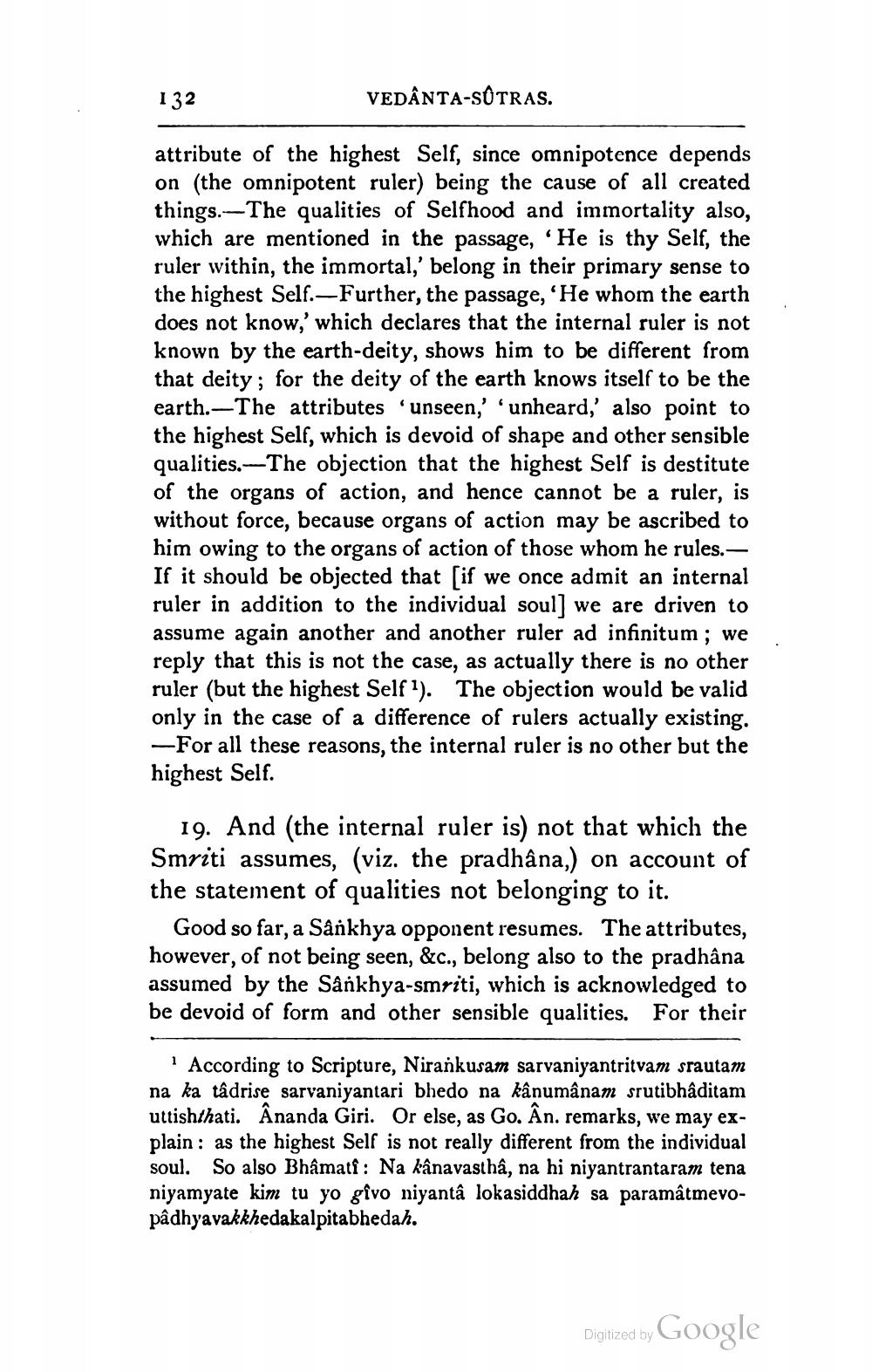________________
132
VEDÂNTA-SOTRAS.
attribute of the highest Self, since omnipotence depends on (the omnipotent ruler) being the cause of all created things.—The qualities of Selfhood and immortality also, which are mentioned in the passage, 'He is thy Self, the ruler within, the immortal,' belong in their primary sense to the highest Self. Further, the passage, 'He whom the earth does not know,' which declares that the internal ruler is not known by the earth-deity, shows him to be different from that deity; for the deity of the earth knows itself to be the earth.—The attributes 'unseen,' 'unheard,' also point to the highest Self, which is devoid of shape and other sensible qualities. The objection that the highest Self is destitute of the organs of action, and hence cannot be a ruler, is without force, because organs of action may be ascribed to him owing to the organs of action of those whom he rules. — If it should be objected that [if we once admit an internal ruler in addition to the individual soul] we are driven to assume again another and another ruler ad infinitum ; we reply that this is not the case, as actually there is no other ruler (but the highest Self 1). The objection would be valid only in the case of a difference of rulers actually existing. -For all these reasons, the internal ruler is no other but the highest Self.
19. And (the internal ruler is) not that which the Smriti assumes, (viz. the pradhâna,) on account of the statement of qualities not belonging to it.
Good so far, a Sânkhya opponent resumes. The attributes, however, of not being seen, &c., belong also to the pradhâna assumed by the Sankhya-smriti, which is acknowledged to be devoid of form and other sensible qualities. For their
According to Scripture, Nirankusam sarvaniyantritvam srautam na ka tâdrise sarvaniyantari bhedo na kânumânam srutibhâditam uttishthati. Ânanda Giri. Or else, as Go. Ân. remarks, we may explain: as the highest Self is not really different from the individual soul. So also Bhâmatí: Na kânavasthâ, na hi niyantrantaram tena niyamyate kim tu yo givo niyantâ lokasiddhah sa paramâtmevopadhyavakkhedakalpitabhedah.
Digitized by
Digized by Google




